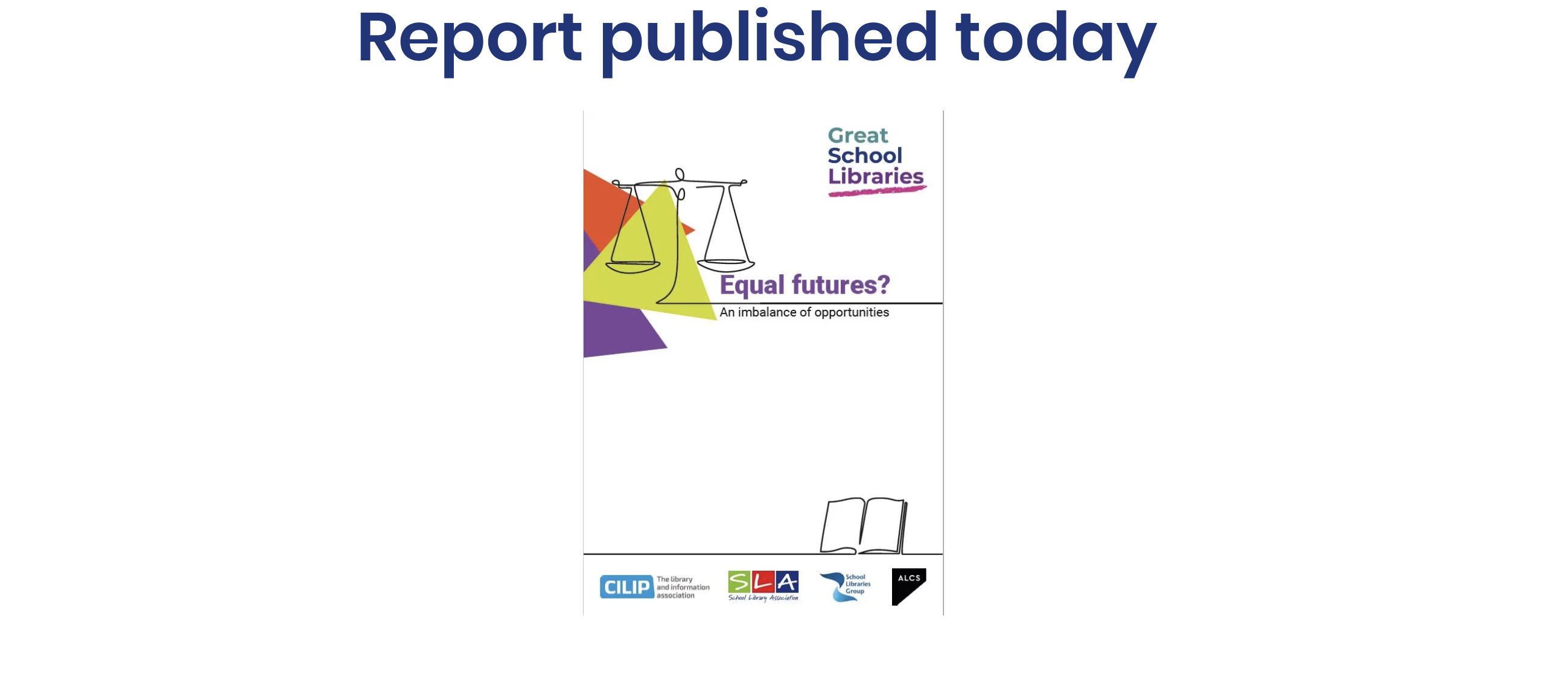Great School Libraries Report 2023: National Findings for Scotland
Category: Blog, SLG Scotland

Summary and reflections by Leah Higgins, CILIPS Graduate Trainee
The benefit of school libraries and librarians cannot be overstated when it comes to the general wellbeing and integrity of a school. We are delighted to be able to share the results of the Great School Libraries 2023 Research Report and support their call to formulate an evidence-based, strategic approach to championing school libraries across the UK.
With the title of Equal Futures? An Imbalance of Opportunities, the report’s scope was to outline and present research based on the different factors impacting the school library landscape, including financial, educational and in the local environment. Despite the growing threat of cuts and closures – highlighted in CILIP Scotland’s recent open letter to the Cabinet Secretary for Education – the report supplies evidence to suggest that school libraries and librarians are, whenever properly funded and supported, ‘leading the way in developing their role… and mak[ing] a multi-faceted contribution to school life’.
Within the report, National Findings for Scotland are included (pages 21-22) and the highlights of this section are as follows:
- 22% of school libraries do not have a designated school library space on-site.
- Only a quarter of schools in Scotland have a designated library budget compared with schools in England.
- The regions of Scotland differ significantly – whilst schools in the south of Scotland ‘are the least likely to report having a library (71%),’ the report found that, ‘the region with the highest proportion of schools with a library is Edinburgh and Lothians (92%)’.
- Regarding the number of years served in the profession, ‘staff in Scotland are the least likely across all the UK nations to have more than 10 years’ experience (29% compared to 50% in Northern Ireland). Despite this, they are more likely to be contracted for more hours a week; it is likely this is due to different staffing structures for some school libraries in Scotland.’
- The report shares of the vulnerability of school library budgets, with figures showing that only 11% of school libraries in Scotland reported a budget increase, significantly lower than other nations. ‘This is probably an unintended consequence of many educational budgets being ring-fenced,’ the report reflects. ‘As ring-fenced budgets are put under pressure those which are not protected get cut, leaving school libraries vulnerable as one of a few places savings can be made.’
- Scottish school libraries are achieving a better delivery of e-books to pupils. This is attributed in the report to ‘combined provision with the public library system and good reach with e-book providers’.
The final section of this report on Scotland’s findings bears quoting at length, as it affirms the importance of the librarian as a professional role that cannot otherwise be replaced or substituted:
‘At the time of writing, two authorities have proposed cuts to their school libraries, and one has already acted and deleted all school librarian posts. If these proposals go ahead in 2023, this would add to declining levels since 2008. Given the stated support of the Scottish Government for school libraries and the important role of reading, this seems to show an extraordinary lack of understanding from the local authorities as to the role of school libraries, or their ability to fund it.
The role of a school librarian cannot simply be filled by the public library service because a school librarian is a specialist role which has learning at its core and which can only be fully effective when the library staff are collaborating and co-working with teachers and have improving learning for pupils as their core outcome.’ (page 22)
Whilst those in the profession already understand and agree that ‘every child deserves a great school library’, it is crucial we now work together using an evidence-based approach to advocate for all that this encapsulates. To read the report in depth and examine the individual figures, please visit the Great School Libraries website or see our extensive evidence bank on why #SchoolLibrariesAreEssential.